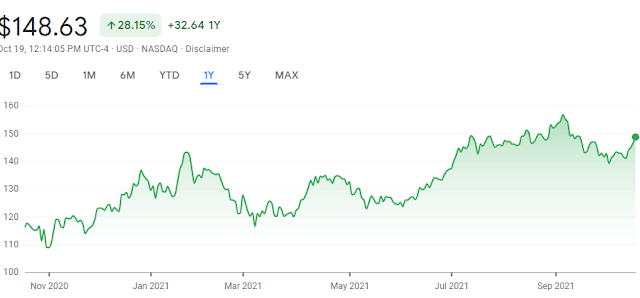As the pandemic continues, there has been a shortage of computer chips which has resulted in slow tech launches. In addition, the demand for tech has grown tenfold over the pandemic thanks to working from home movements. Like most other tech giants, Apple has been hit by the shortage and is expected to launch its new products later this month. But they have come around this with the creation of their very own chips.
(Image Source: Apple)
The company unveiled its new chips which will soon be used to power the new Macbook Pro laptop computers. The company said that it would also release an update to its macOS software following the conference.
It's no surprise that everyone has been anticipating Apple's next moves, given the lack of updates for their computers over the past few months. While speculation varied about what Apple might have announced, many betted on a revamped MacBook Pro or an introduction of their own computer chips.
Apple claims the M1 Max chip is the most powerful it has ever built with 57 billion transistors. Reports that Apple had to cut the production of its iPhone 13 production due to the global chip shortages could be the lead in creating their own.
Unlike Intel's chips, which are designed for computers and rival AMD's processors primarily intended for mobile devices such as iPhones and iPads, Apple's other A-series chips are mainly targeted at professionals. The new chip is aimed at professional users such as computer programmers and graphic designers who rely on their computers to produce graphics-heavy projects.
The chipset is a high-performance processor that will be used in a range of Enterprise products. According to reports, the chip will be sold by contract to companies that need it for specific projects or tasks that they can't complete with their current operating system or hardware. As Apple stocks fell 0.9% after posting a 3.3% decline to close at $141.91, like many others, relying on external chip manufacturing tech companies is not feasible the future.
(Image Source: Google Finance)
Both Apple and Intel noted chip shortages in the market in January. Apple told its customers that it has "enough" of the A9X chip orders but that the supply of chips slowed down when Intel was trying to ramp up production for these orders.
Apple's new MacBook Pro has been criticized for having a lack of features that were present in previous generations of devices released by Apple. In addition, the battery life is said to be declining as well as the computer's speed as compared to its competitors' products, along with other technical problems such as Wi-Fi compatibility issues and faulty start-up chimes.
The company also said that its operating system is now supported by 85% of all iOS devices in the market. In addition, it is supported by three-quarters of all compatible Mac computers in use today. The majority of mobile devices in use today run on Android, which operates on more than 24,000 different mobile devices at present - with an 80% market share for mobile operating systems overall.
(Image form Statista represents market share of mobile operating systems worldwide from January 2012 to 2021)
The shortage of chips for technology has affected the economy and has led to a decline of tech releases which the company is finding challenging to combat. Apple has previously said that they were considering building their own chip as a solution to the problem. However, they were experiencing difficulties in getting chips from Intel and rival AMD.
The company was seen as more likely to go with Intel, given its long-term relationship with the chipmaker and its global manufacturing scale. But it is now apparent that Apple and Samsung have been developing their own processors for years and that producing their own chips was a more feasible option than first thought.



No comments:
Post a Comment